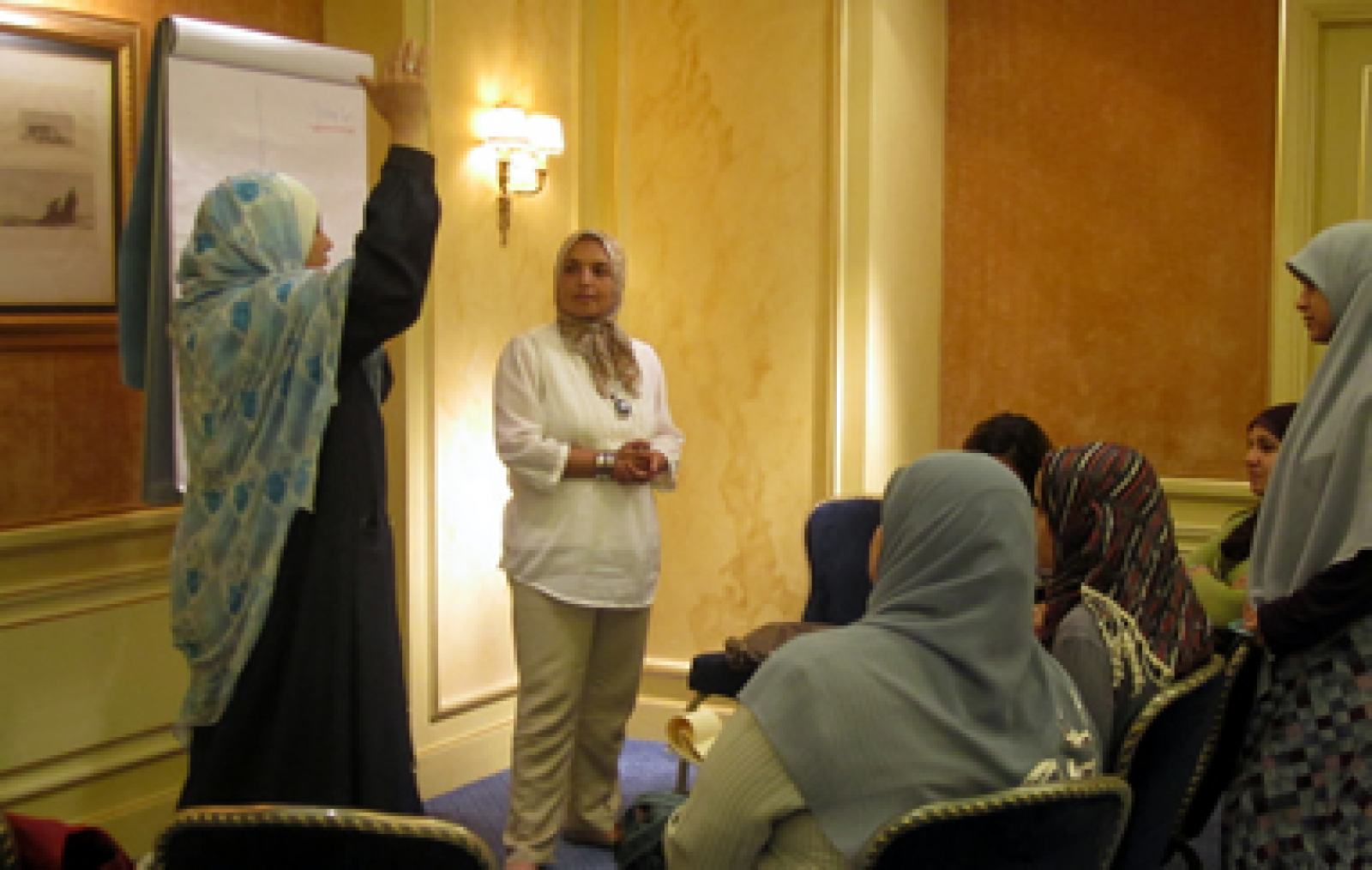
SHARE
During Egypt’s revolution, thousands of women joined men in the streets to promote democratic reform. Now, as the country prepares for its first post-revolution parliamentary elections this fall, women are seeking to participate equally in the challenges of governing.
Women running for office in Egypt will face many obstacles presented by both custom and law. The new interim government, for example, has eliminated a requirement from the last parliamentary elections that 64 seats, about 12.5 percent of the total, go to women. However, it has maintained a requirement that 50 percent of the parliament be made up of farmers or workers, categories that traditionally do not include many women.
In addition, the way candidates are elected to parliament will work against women. Egypt is expected to elect the majority of members through party lists. Each party will create a list of candidates, which must include at least one woman, but there is no regulation on where she must be placed on the list. It is likely women will find themselves at or near the bottom, which means they will have little chance of actually serving in parliament.
A smaller number of seats is expected to be filled by candidates running individually in districts, but this system also works against women because of the 50 percent farmer/worker quota.
Lack of female representation could have far-reaching consequences. For example, a committee is expected to be created following the election to write a new Egyptian constitution. It will be composed of 100 members from the new parliament. A lack of women members in parliament means there will be few women at the drafting table working to represent the interests of more than half the country’s population.
This month, NDI launched a series of Women Candidates Campaign Schools designed to impart skills they will need to overcome impediments to political participation. In Alexandria, on Sept. 10 and 11, more than 100 participants from a dozen political parties came together with independent candidates and NGO activists. The following week, on Sept. 16 and 17, the Institute hosted a campaign school in Cairo for 78 women. A third school is planned in Upper Egypt in early October.
The schools covered such topics as campaign strategies and tactics, message development, voter contact, research and targeting, public speaking, promoting yourself within your party, working with the media, using social media in political campaigns, and mastering the country’s complex electoral code.
Participants, both first-time and former candidates, as well as campaign managers, received technical advice from campaign experts and current and former women parliamentarians. In Alexandria, Blagorodna Mingova Krepieva, a former member of parliament from Macedonia, spoke about her experiences coordinating the multipartisan Women’s Parliamentary Club, which successfully advocated for the inclusion of a women’s quota in the election code. At the Cairo school, Tamam Al Riyati, a first-time member of parliament, shared her experiences using innovative campaign techniques in Jordan. Other experts included an American political organizer who has managed congressional, Senate and presidential campaigns; a former CNN correspondent; and an American strategic communications expert.
NDI incorporated a hands-on element to the program, setting up a formal media studio for candidates to practice filming 30-second campaign messages that were recorded and played back for constructive feedback. “Standing up in front of the camera and presenting myself to the voters taught me how to have self-esteem and confidence,” said a two-time candidate. Through this experience, and standing up to speak in front of their peers and potential political opponents, participants said a key lesson was how to handle political adversaries on the campaign trail in a civilized and calm manner.
Despite the huge task ahead, participants felt motivated at the end of the campaign school and even crossed party lines to start a dialogue on how to advocate effectively for women’s rights in post-revolutionary Egypt. At the graduation ceremony for the Alexandria training session, one participant enthusiastically declared, “Before coming here, I was 40 percent certain I would run for office, but now I am 90 percent confident that I will be a candidate in the upcoming elections.”
The two-day schools were supported through a grant from the United States Agency for International Development.
Related:
- Women leaders in Egypt learn from global transition experiences»
- Young women gain confidence, mentors from leadership school in Iraq»
- Women gain the confidence, skills and network to win elections in Lebanon»
Published Sept. 29, 2011


